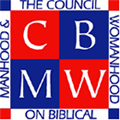As I approach reviewing this book, I do so with some trepidation. First, I have many positive thoughts about many of VanDrunen’s words. I appreciate what he is attempting to do in making a distinction between the church as the redemption community (kingdom) and the kingdom in general as reflected in the “cultural mandates” and the “Noachian covenant.”
Second, I would like to encourage the careful reading of this book. However, as one coming from a one kingdom perspective, as I believe taught by John Calvin, Abraham Kuyper, Cornelius VanTil, Francis Schaeffer and others, VanDrunen is writng from a two kingdom perspective. (We will say more about this in the lead article in this issue and in the next book to be reviewed written by Richard Mouw).
One of the obvious problems with Christianity today is its confusion about the church, the kingdom, and their respective roles. I have written and taught on this topic for a number of years. We often find the church being and doing things that God never assigned her to do, and consequently, the kingdom fails to have the witness and impact that is needed today. I do not believe the two kingdom view, which in effect separates the church from the kingdom, helps address the problem.If you will read this book from the perspective that the church is part of the kingdom, while not synonymous with the kingdom nor removed from it, but understand the “spiritual mission” of the church within the kingdom, you will find much to feed on in these pages.
If you look at the diagram in the lead article of this issue, you will see that the church is the heart of the kingdom but is not the totality of the kingdom. We use the terms kingdom general and kingdom special to delineate between the broader kingdom and the church. Also, we need to be careful about the phraseology “the spirituality of the church” because it has been used to suggest that thechurch has no redemptive emphasis on the culture in which it ministers. As we wrote in the review on the book Politics, the church doesn’t involve itself in making political pronouncements nor does the church attempt to establish a Christian political party, whatever that is, but it does have to teach the people what the Bible says about politics and how that impacts the Christian worldview. The church, in teaching the Word, does so in a way that will enable Christians to have a biblical perspective on politics.
I really want to read the things VanDrunen writes from a one kingdom perspective but emphasize the difference between the church’s mission in disciplemaking by teaching the Word and administering the sacraments, and the kingdom’s role of seeking to flesh out that the Triune God is sovereign over all, which even includes that limited kingdom darkness.
While it is important to realize that Christians are not assigned the role of transforming culture, as some maintain, it is responsible to have a godly impact on the world in general. Whether or not that happens basically depends on the church, focusing on the things that God has given to her to make kingdom disciples. Van Drunen writes that a Christian should not withdraw from the broader culture, but should take up the cultural tasks with joy and express their Christian faith through them. Every lawful occupation is honorable, says VanDrunen, (page 13). The church’s role is to equip, train, and disciple Christians to live in that broader culture as Christians.
He further writes, “The redeemed people are citizens of the “redemptive kingdom,” whom God is gathering now in the church and will welcome into the new heaven and new earth at Christ’s glorious return. Until that day, Christians live as members of both kingdoms, discharging their proper duties in each.” I would simply say that we who are redeemed should live in the kingdom where God, by his Spirit, leads us with whatever redemptive influence God would allow us to have.
In conclusion, because we believe the church’s role is to live redemptively in the kingdom, and while it has not been assigned the responsibility to transform culture, as salt and light, there will be a strong Christian witness as Christians live as kingdom disciples.

 But now Zondervan, the publisher of the NIV, has issued a new edition, the 2011 NIV. This edition will replace the current NIV (the 1984 edition). What is this new edition like?
But now Zondervan, the publisher of the NIV, has issued a new edition, the 2011 NIV. This edition will replace the current NIV (the 1984 edition). What is this new edition like?
 Bible study…everybody’s doing it! In the most inventive contexts around the globe, this vital activity is taking place. Yet “Bible study” means different things to different people.
Bible study…everybody’s doing it! In the most inventive contexts around the globe, this vital activity is taking place. Yet “Bible study” means different things to different people. In the last edition of Equip to Disciple, we included a book by Gabe Lyons, The Next Christians. We believe it contained valuable information on the rising and emergent generation, many of whom have dropped out of church. This book by Drew Dyck fits into that same kind of category. It deals with those who are turning away from the church, and in many cases are turning away from God. They are not only leaving the church, they claim to be leaving the faith.
In the last edition of Equip to Disciple, we included a book by Gabe Lyons, The Next Christians. We believe it contained valuable information on the rising and emergent generation, many of whom have dropped out of church. This book by Drew Dyck fits into that same kind of category. It deals with those who are turning away from the church, and in many cases are turning away from God. They are not only leaving the church, they claim to be leaving the faith.